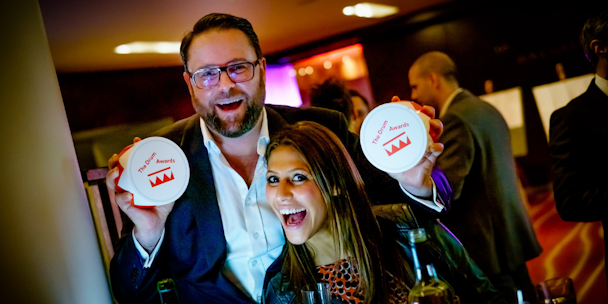Humanize award entries and pick the right categories: The Drum Awards US workshop
Writing an award entry can be tough. How much information should you include? What do the judges want to see? Should you include video? You don't want to bore the judges to tears, you want to include crucial information. That could make the difference between winning a trophy or going home empty-handed.

Humanize your award entries and select the right categories: The Drum Awards US workshop
The Drum, at Fiverr’s (a freelance services marketplace) New York offices, spoke to award winning PMG’s account supervisor, Amanda Parker and our very own editor -in-chief Gordon Young on the top tips for creating an award winning submission.
Bring in outside minds
Of course you know your projects and campaigns inside out, however, according to Parker: “If you start talking to someone who isn't as deep into the work as you, you realise what could be added to make it that bit better. Talk through it, brainstorm how you want to tell the story and give the person who will ultimately write the submission a narrative. After that it's about being tight. Get your data together and then start writing.”
Young agrees and adds that it’s very difficult to proof-read your own work. At The Drum, when entering awards, it’s a mix of wins and losses. “Our wins usually come from when we bring in an outside freelance writer, even though we have lots of writers ourselves, it can be very powerful," he said.
“It's worth considering that tactic to commission an outside writer to either review your paper or write it. It can be the little details one tends to forget which may be the best story and might be the one thing that's going to sell the paper.”
The human experience
It is critical to remember when entering awards that this is a human experience. When writing an entry, Parker becomes excited about the opportunity to show the world what great co-workers she has, the amazing things they get to do and the clients that have put trust in them.
“Think about your great client, your team and the judge on the other side, who's maybe going to give you that great prize at the end. If you look at it that way and not a task or an accolade that your company needs to get but an accolade for people from people, I think you'll be more successful.
“Start with a positive reason rather than a negative reason to enter. It will make it a lot easier when showing that enthusiasm in the submission," she said.
Video versus writing
Video is becoming more popular in award entries. There's no doubt that it's a great way to bring projects to life. Young recommends it to supplement an entry. From the nature of video, it tends to be quite short and to the point. “It's a good way of communicating exactly the key issues of any paper,” said Young.
“It's fair to say it makes a real difference and can help shortlisting. If a judge sees a great video when going through that initial stage of overviewing everything, that's where you're looking at that retention.
“You need to think, your paper is one of several hundred and some judge will be going through all of that. Picture that judge in that position and a video may help them out and stand out.”
Challenges of putting a report together
A particular challenge when entering awards is running the report by the client. You need to make sure that they are comfortable with what you are sharing.
“One of the hard things is getting all the data and then distilling it into numbers that tell a story, give insights but doesn’t give away sensitive business details or information that is wrong,” said Parker.
“Finding different ways to prove your success by looking at the data and saying that sales were up this year without the numbers, still shows and proves that it was successful but doesn't put anyone in a position of not getting your entry approved by the client or giving to much away.”
Another area that entrants can get confused is category selection, added Young. In many judging’s he has done, about 20% of the work is deemed to be in the wrong category.
“It's worth looking closely at the categories and making sure that you're confident that you're entering in the best category,” explained Young. “Also, make sure you say why your piece of work is relevant to the category.”
He concluded: “Monitor what the most popular categories are and then perhaps enter the least popular. That might help the odds of you winning something because there are less entries in that category.”
The Drum Awards is a global scheme that aims to identify the best practices, companies and people in our industry. Its mission is to share that information with readers of The Drum - one of the worlds largest marketing platforms - to help them make better decisions.
Entries for the first half of 2019's awards are now open. If you have any questions, queries or need advice on your entry form, please contact one of our event managers.

